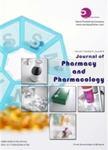Suspected Resistance against Moxidectin in Sheep Strongylid Nematodes in Austria
Suspected Resistance against Moxidectin in Sheep Strongylid Nematodes in Austria作者机构:Department for Farm Animals and Veterinary Public Health University of Veterinary Medicine Vienna Vienna 1210 Austria Department of Pathobiology Institute of Parasitology University of Veterinary Medicine Vienna Vienna 1210 Austria Bioinformatics and Biostatistics Platform University of Veterinary Medicine Vienna Vienna 1210 Austria Animal Health Service Styria Graz 8010 Austria
出 版 物:《Journal of Pharmacy and Pharmacology》 (药剂与药理学(英文版))
年 卷 期:2017年第5卷第3期
页 面:109-117页
学科分类:090603[农学-临床兽医学] 0905[农学-畜牧学] 09[农学] 0906[农学-兽医学]
主 题:FECRT (faecal egg count reduction test) EPG (eggs per gram) faeces moxidectin anthelmintic resistance.
摘 要:Loss of efficacy due to resistance development against anthelmintics in livestock parasites is a growing concern worldwide. The aim of the present study was to determine the efficacy of moxidectin, a frequently-used macrocyclic lactone, against gastrointestinal nematodes of sheep in Austria. Individual faecal samples were collected from 243 adult sheep from 16 flocks in Styria and Salzburg before deworming and egg excretion (EPG (eggs per gram) of faeces) was determined using a modified McMaster technique. The animals were randomly assigned to a treatment group which received 0.2 mg/kg of body weight of moxidectin (Cydectin , Zoetis Schweiz GmbH, Zurich, Switzerland), and an untreated control group. Fourteen days after deworming a FECRT (faecal egg count reduction test) for detection of anthelmintic resistance was performed. Before deworming, the infection rate for gastrointestinal strongylids was 94.7%, with EPG values of 0-5,800. The FECRT showed reduction rates between 93.08% and 99.78% and was sufficient in 15/16 flocks. The lower confidence interval was 70.0-100%. In 3/16 flocks this value was below the minimum for sufficient efficacy (70.0%, 79.0%, 85.0%), and in two flocks the value (90,0%) was near the limit. These results indicated a (suspected) reduced efficacy of moxidectin in 5/16 examined flocks.



